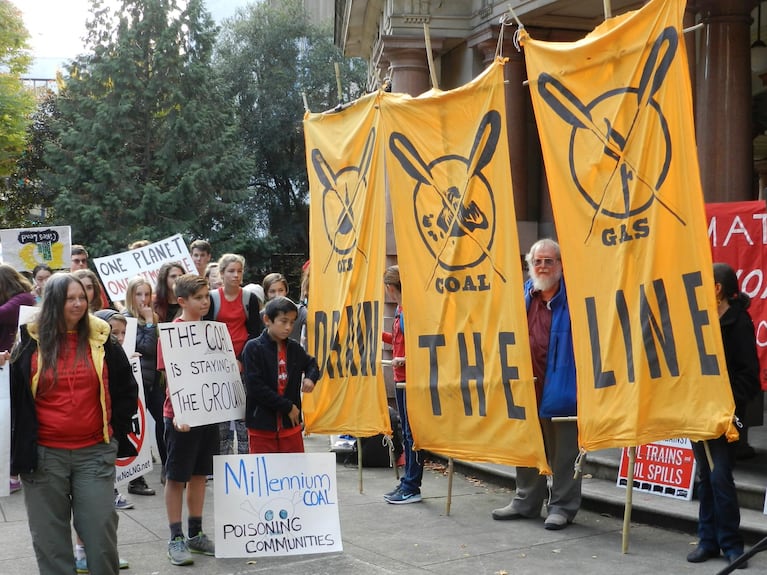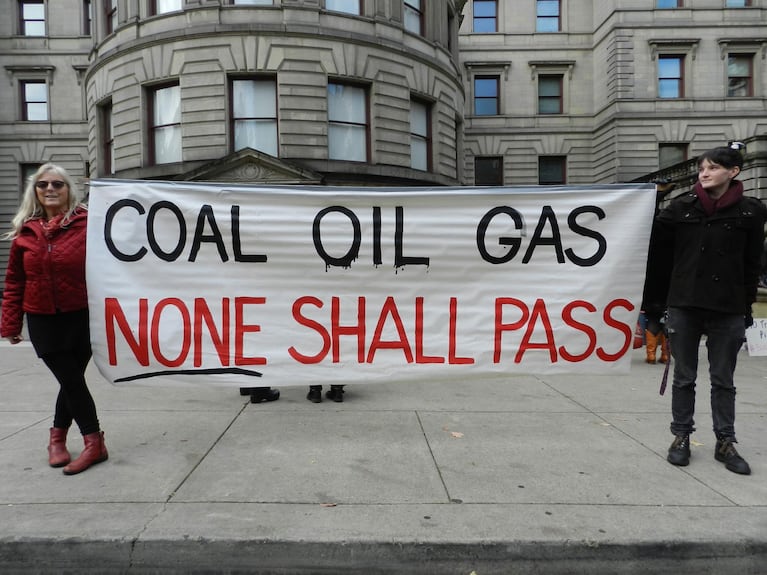
More than a hundred people rallied outside Portland City Hall Wednesday in support of two resolutions opposing fossil fuel projects.
Alan Montecillo/OPB
Portland city commissioners on Thursday voted unanimously to oppose any new projects that would increase the transportation or storage of fossil fuels in the city.
The vote followed hours of testimony that mostly supported the resolution. Among the people testifying were students, who in recent years have filed lawsuits that asked the federal government, states and cities to take action on climate change.
Environmental groups praised the move by Portland commissioners as a "landmark," and the most stringent action taken by any city against climate change.
Mayor Charlie Hales delivered the final vote for the resolution before the chamber erupted in loud cheers. He said the council’s decision shows a clear commitment to counteract climate change.
"It feels like things are accelerating," the mayor said, referring to recent action by the White House and a climate summit earlier this year hosted by Pope Francis. "We have one route through those rapids that are just ahead.
"The future is not that far away, but if we are aware," Hales said, "and we steer where we want to go, we can get to a safe and wonderful future."
While all of the city commissioners eagerly endorsed the resolution, Commissioner Dan Saltzman noted that the vote took place before a friendly crowd.
“We still have a lot of work to do," Saltzman said. "It’s easy to proselytize among ourselves and feel a sense of excitement in the city hall chamber that’s packed with advocates. But when you step outside, we have a real world that needs to be persuaded and convinced.”
Thursday's vote was the second climate change resolution city commissioners have voted on in as many weeks. Last week, the council voted to oppose projects that would increase oil train traffic in the metro area.
That was a largely symbolic vote, however, because the city doesn't have jurisdiction over railways.
Both resolutions are a response to the rapid expansion of fossil-fuel development nationwide and numerous oil train accidents in recent years.
Vancouver Energy Project wants to build the nation’s largest oil-by-rail terminal at the Port of Vancouver. If completed, it would ship an average of 360,000 barrels of oil daily to refineries along the West Coast.
While opponents to the resolutions were greatly outnumbered, they urged the commissioners to consider how limiting fossil fuels in the region could hurt jobs.
“I wish the people in this room had the same passion for income inequality as they have for fossil fuels,” said electrical worker Joe Esmond at least week's hearing.



